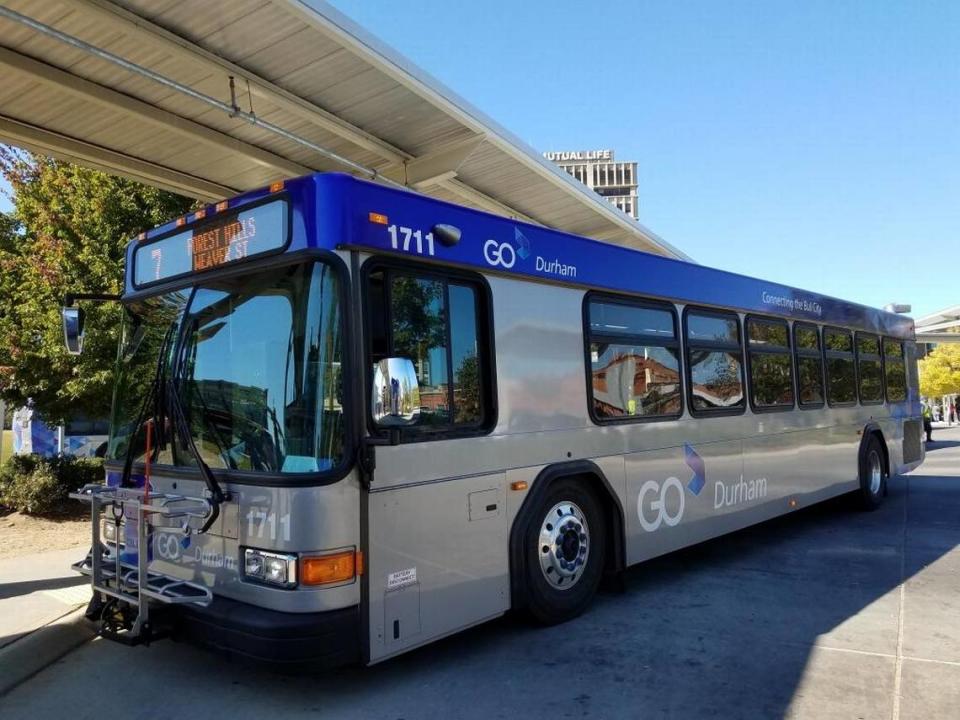Transit workers enlisted in the fight against human trafficking in North Carolina
In addition to driving a bus or taking tickets, transit workers in North Carolina will also be trained to recognize potential signs that a passenger is being taken somewhere against her will.
The N.C. Department of Transportation has created a training program on human trafficking — when someone coerces, tricks or forces people to work or to engage in sex.
Many human traffickers move their victims on public transit. In a survey in 2017, 42% of victims nationwide reported that at least part of their journey was on a local or intercity bus, according to the Polaris Project, a nonprofit that combats sex and labor trafficking in North America.
Buses, trains and their stops and stations also provide a means of escape, especially if drivers and fellow travelers recognize that someone is in trouble. That’s where NCDOT’s new training comes in, according to Julie White, the deputy secretary for Multi-Modal Transportation.
“Human traffickers frequently use public transportation to move their victims because it’s inexpensive and provides for greater anonymity,” White said in a written statement. “That’s why it’s critically important that front-line staff and operators of our public transit vehicles know what to look for and how to respond, if they even suspect they’re witnessing human trafficking.”
The 40-minute online training course will be required for all public transit employees in North Carolina. NCDOT also created posters and a 30-second public service announcement aimed at transit workers and travelers.
More than 2,000 human trafficking cases involving nearly 5,900 people were reported between 2007 and 2021 in North Carolina through the National Human Trafficking Hotline. Of cases reported in 2021, about 20% were for forced labor, while the rest involved sex trafficking, according to the hotline. About 88% of the victims were women and gir

The situations vary. In 2020, the manager of the Neon Moon Spa message parlor in Durham was charged with promoting prostitution after sheriff’s investigators determined that three women who worked there had been trafficked. The women worked 12-hour days, rarely left the building and were paid only in tips.
In another case, a Durham man was sentenced to life in prison earlier this year after he and an accomplice lured five women who were homeless and struggling with drug addiction to a house and forced them to provide sex for money from July 2021 until late spring 2022.
The General Assembly created the N.C. Human Trafficking Commission in 2013 to combat the problem and has taken additional steps since then, including creating eight positions for anti-human trafficking agents at the State Bureau of Investigation.
A year ago, the U.S. Attorney’s Office of Eastern North Carolina created a Human Trafficking Task Force primarily focused on the Raleigh-Cary area, to help law enforcement agencies share investigative leads, receive special training and learn how to recognize and combat trafficking.
Signs of possible human trafficking
The NCDOT training, posters and PSA urge transit workers and passengers to look out for signs of potential human trafficking. They include:
▪ Passengers who are with someone who won’t let them speak for themselves.
▪ Passengers whose tickets and ID documents are controlled by another person.
▪ Passengers who do not know the person who purchased the ticket for them or who don’t know the name of the person they are meeting when they get off.
▪ Passengers who appear frightened, injured or both.
▪ Passengers who offer sex in exchange for money or food.
People who observe these situations are urged to call the National Human Trafficking Hotline at 1-888-373-7888 or text 233733 (Befree). Experts advise against approaching a suspected trafficker but recommend calling 911 if someone appears to be in immediate danger.
For more information about human trafficking, go to humantraffickinghotline.org/en.

